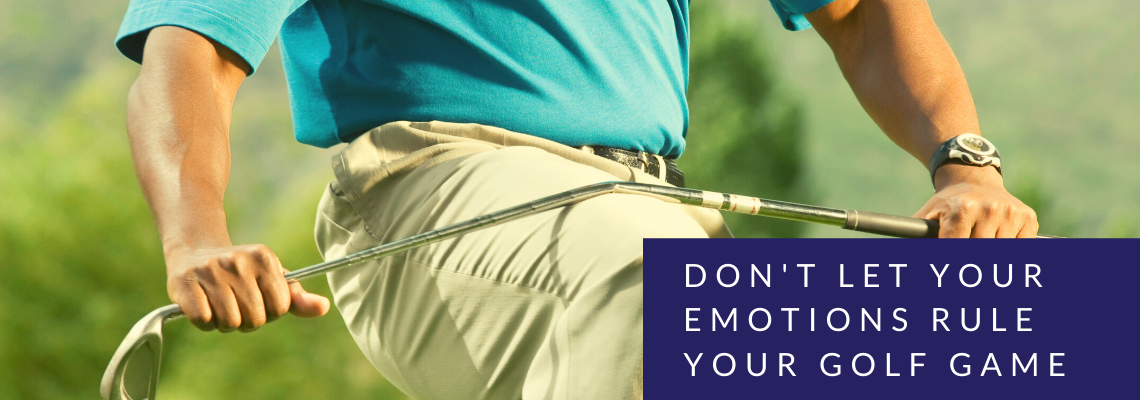How many times have you battled anger, frustration, or even embarrassment following a bad shot? It’s okay to get frustrated with your game. But how you proceed from that flash of emotion will have an impact, either good or bad, on your subsequent shot, hole, or round.
No one wants to see or react like those who can’t control their emotions on the course. Have you ever allowed your bad attitude to get the best of you? Throwing clubs, using foul language, or just beating yourself up internally in response to poor performance demonstrates poor control over your reactions. Following a poor shot you always have one of two options. You can act like a poised Tour player or a two year old.
Avoid Getting Bowled Over By Your Emotions
Being dragged around by your negative emotions will set you up for failure. If your M.O. is to lose control of your feelings because you think there’s nothing you can do to control them then you might want to find a new sport.

If, on the other hand, you’re interested in knowing how to quickly move past your frustration and get your head back in the game, please read on.
As I mentioned in the title, it’s okay to get frustrated by your game. But letting your emotions rule you won’t make you a better player. The first step to maintaining good emotional control is to play with a sound mental pre-shot routine to guide your thoughts and every shot in a successful direction. The second step is to play with a consistent post-shot routine to help you process your thoughts and feelings after every shot, especially if a shot doesn’t turn out as you desired.
The Importance of a Post-Shot Routine
The purpose of a post-shot routine is to guide you through the process of constructively assessing your performance, good or bad. After a good shot, it provides you the opportunity to relish in the moment, and give yourself a pat on the back. Many golfers move right on after a great shot without really enjoying the moment. The more you connect with the good feelings, the greater the imprint of that success in your memory. And the great shots are the ones you want to recall with ease in pressure-filled moments to give yourself that extra boost of confidence.
Engaging in a post-shot routine following a less than ideal shot will prevent you from immediately emotionalizing and personalizing your performance. Imagine you are a swing coach and consider how you would respond if one of your clients hit a bad shot. Would your reaction be one of verbal disgust, or encouragement? If you wanted a steady stream of clients, then I am sure it would be the latter. So why would your self-coaching be any different?
Following any shot, attempt to push the pause button on your immediate emotional assessment and view the shot with objectivity. If you are feeling frustrated, then allow yourself a finite amount of time to go with it. Then focus on identifying something of value before putting your club back in the bag and moving on.
Start and finish every shot from a place of positive, controlling your reactions to maintain a more even emotional state from shot to shot. Your emotions are within your direct control, so don’t allow them to rule how you play the game.
Are You Ready to Take Your Game to the Next Level?
CONTACT ME to discuss your biggest opportunities in the game.
Now get out there and PLAY GREAT!
Leave a Reply